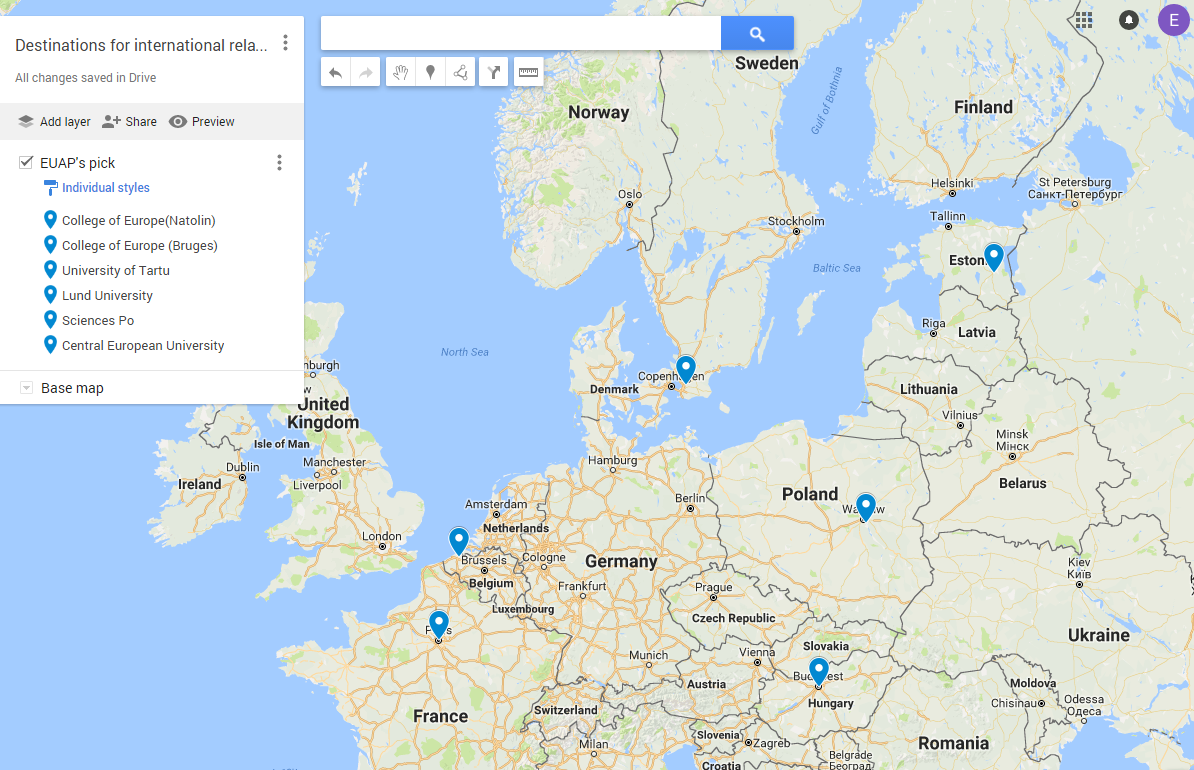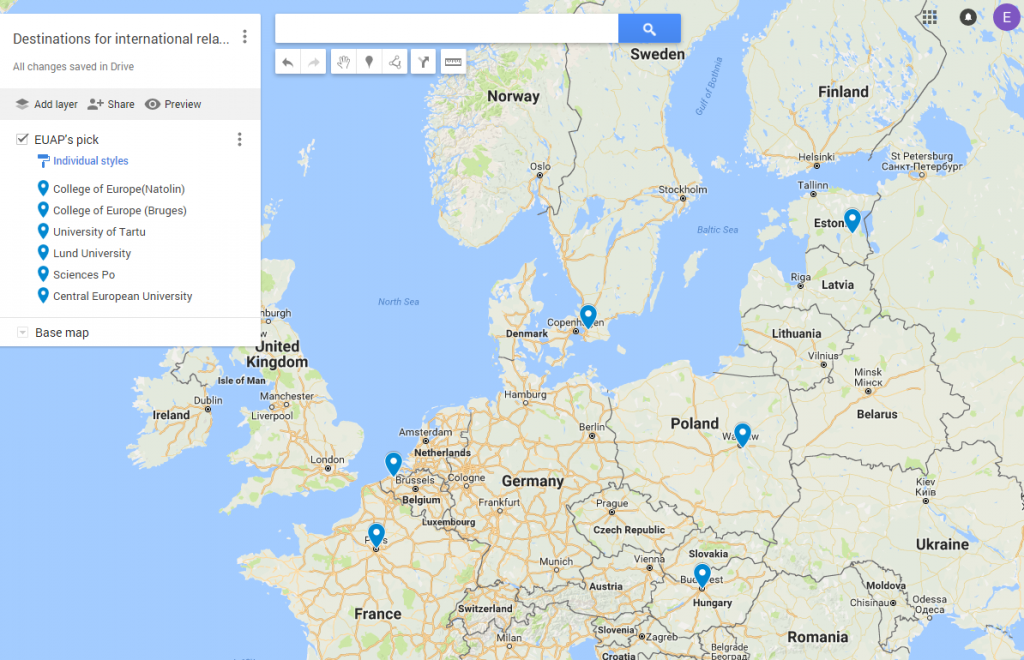By Iverson Ng
Studying in Europe is more than sharpening your fashion sense in Paris, getting a taste of authentic pizza in Italy, or flourishing your medical expertise in the Nordic medicine industry. Instead, in the wake of Brexit negotiations and Donald Trump’s presidency in 2017, Europe will become an exciting destination for you to study international relations.
We would like to introduce you a list of European universities which are prestigious in their international relations departments, namely the College of Europe, The Paris School of International Affairs (Science Po), Central European University, University of Tartu, and Lund University.

1) College of Europe (Burges, Belgium & Warsaw, Poland)
Founded in 1949, the College of Europe is located in the Belgian city Bruges and the Polish capital Warsaw, offering Advanced Master degrees for a 10-month study from September to June. With 70% of its students receiving scholarships from their government, public or private institutions, the College takes in 400 postgraduates from over 55 countries. While the working languages are English and French, the teaching staffs remain international—with 230 professors and practitioners from over 20 nationalities.
Currently, there are six courses available in the Master of Arts: European Interdisciplinary Studies, EU International Relations and Diplomacy Studies, European Political and Administrative Studies, European Economic Studies, European Legal Studies, and Transatlantic Affairs.
https://www.coleurope.eu/
2)University of Tartu (Tartu, Estonia)
The University of Tartu is located in the second largest Estonian city,Tartu. Founded in 1632 by a Swedish King, this university is one of the oldest universities in the Baltic States (Estonia, Lithuania, Latvia). Partnering with 74 universities from 29 countries, the University of Tartu has 13,400 students including over 800 international students from 70 countries.
The highlight of this university is the Johan Skytte Institute of Political Studies, a political science institute which offers four Master of Arts programmes including Baltic Sea Region Studies, Democracy and Governance, European Union – Russia Studies, and International Relations and Regional Studies.
Currently the Johan Skytte institute is cooperating with several organizations including European Consortium for Political Research (ECPR), Association for the Advancement of Baltic Studies (AABS), Program on New Approaches to Research and Security in Eurasia (PONARS Eurasia), the European University Institute (EUI), and Central and East European International Studies Association (CEEISA).
3)Lund University (Lund, Sweden)
Located in the southern part of Sweden, Lund University is ranked 78th out of the top 100 universities around the world with an emphasis on research and innovation. The university provides education and research in eight faculties along with specialized research centers. It also offers European Studies (Master of Arts), European Affairs (Master of Science), European Business Law and European and International Tax Law. Among the European programmes offered by the Swedish university, the European Affairs programme provides a ten-week internship opportunity for the students who enrolled the course to work at the European Commission and Brussels-based institutes which involve in consultation and lobbying activities.
As the university enters its 350th anniversary this year, it will offer a total of€350,000 (around HKD2,900,000) for non-EU/EEA students to cover a part of or the full tuition fee.
The city of Lund is one of the oldest Swedish cities since 990, and it is located less than one hour away from the Danish capital Copenhagen, the largest city in northern Europe.
http://www.lunduniversity.lu.se/
4)Central European University (Budapest, Hungary)
Central European University (CEU) is a graduate institution in Budapest, the capital of Hungary. It was founded in 1991, the time when the Soviet Union collapsed.
The institution offers courses in social science, humanities, law, management and public policy. The courses offered by the Department of international relations give insights on the European Union as a global actor. The department offers one-year Master of Arts(MA) programme for undergraduates who have finished a four-year programme and two-year MA programme for undergraduates who have finished a three-year programme in International Relations. The former belongs to a track system which students have to take two tracks including European Studies, International Relations or International Political Economy in one semester. After graduation, students will gain knowledge from all of the aforementioned tracks. The two-year course combines rigorous theoretical and methodological academic training in courses including Comparative European Politics and the Political Economy of the EU.
On a side note, the CEU aims at promoting open society by encouraging civic engagement. The engagement process includes the “Human RightS Initiative” which promotes awareness on human rights issues and Open Learning Initiative which offers refugees and asylum-seekers in Hungary weekend courses.
5)Sciences Po (Paris, France)
The Paris School of International Affairs
The Politics and International studies program of Sciences Po ranks 4th in the 2016 QS Ranking of World Universities by subject. With 1500 students representing over 100 countries, the Paris School of International Affairs of Sciences Po (PSIA Sciences Po) has 70% of international students along with 65% of courses taught in English. Being a member school of the Association of Professional Schools of International Affairs, PSIA has an access to the portal of strengthening PSIA students’ connections with other students from 35 other prestigious schools of international affairs including Harvard University, St. Petersburg State University and National University of Singapore.
The PSIA offers 9 master’s programs, 10 international dual degrees along with 23 concentrations. Among all the master’s programs offered, the Master in Human Rights and Humanitarian Action is the most notable one, as it provides students with a mix of various social science approaches including philosophy, history, sociology and anthropology to shed light on humanitarianism and human rights.
Currently Sciences Po’s Career Services provides 17,000 internships and job offers.
http://www.sciencespo.fr/psia/

